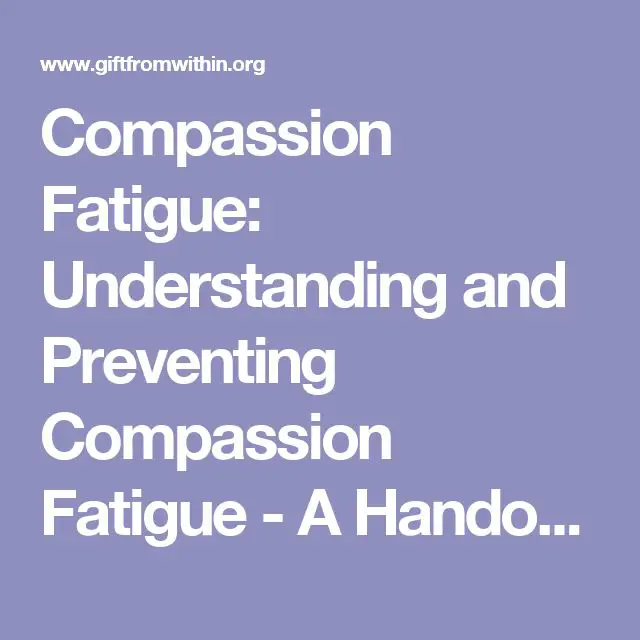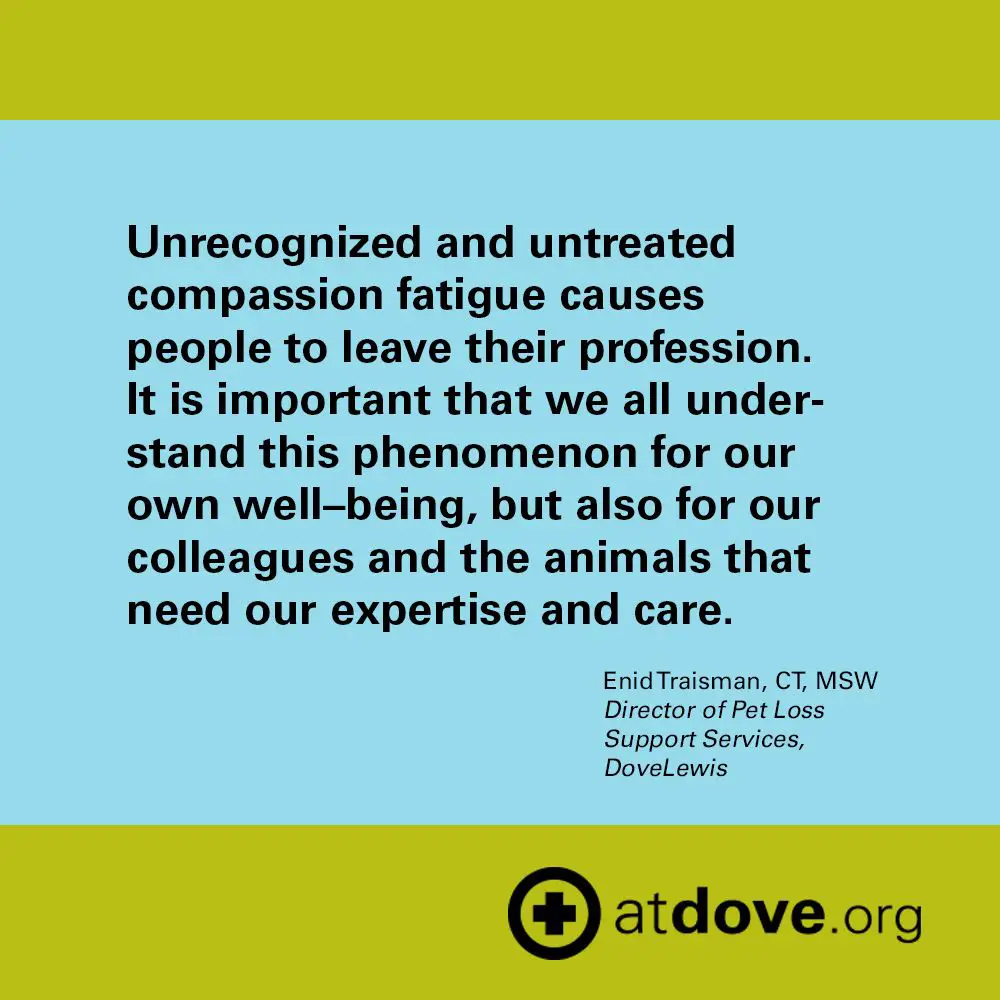Stress Is Part Of Life
It is important to recognize that stress is a part of life, and it is easy to experience burnout and compassion fatigue when we do not move off of our automatic pilot way of steering through life instead of taking the steering wheel, recalibrating, and moving carefully and calculated in a values-driven direction. In fact, all humans will and do experience discomfort, including stress, self-doubt, fatigue, and fear. It is our attempts to eliminate discomfort that are doomed to fail at some point. We find that the more you try to get rid of discomfort the more you got it . We eventually realize that our solutions to eliminate discomfort now become the problem. This can exacerbate our burnout and compassion fatigue. Instead of focusing on self-care, we incorrectly focus on trying to keep digging and digging within the hole we have found ourselves. Yet, analyzing how we got in the hole or blaming the hole or the shovel does not help at all. We need to stop struggling with the stress and take active steps to do something different, something aligned with who and what we care about. This includes steps to care for yourself.
If you did not care you, you would not experience discomfort and there would be no potential struggle. However, there does not have to be a struggle. There can and is a better way of managing the situation, our thoughts, and emotions.
Recommended Reading: What Blood Disorders Cause Fatigue
Create A Strong Network
In our competitive culture, it is easy to develop a sense that we have to go it alone. However, we are hardwired for connection and interdependence it really does take a village. Build a professional community of trusted colleagues with whom you can share your vision, fears, hopes and successes. Look for allies to help in difficult situationsa maintenance specialist, office administrator, or the teacher next door might connect with a student who gives you the cold shoulder. Such relationships not only support you, they can help students build trust and confidence.
Engage In Activities That Soothe And Recharge You
Having outside hobbies or pastimes not related to work can help you take a step back from stressful situations. Find pleasure in activities that relax and replenish you, whether it be sports, crafts, games, spa days, massage therapy, whatever it may be. The point is to make time for activities that decrease your stress and improve your satisfaction with life.
Also read: 15 Inspiring Hobbies That Have Nothing to do with Work
Recommended Reading: Anti Fatigue Compression Foot Sleeve
How Does Compassion Fatigue Differ From Burnout
Burnout is also common among medical professionals and shares some symptoms with compassion fatigue, which can make it difficult to distinguish between the two.
Notwithstanding these similarities, the conditions differ from each other in several key ways:
- Compassion fatigue may have a more rapid onset while burnout emerges over time
- Compassion fatigue tends to be less severe and has a faster recovery
- Compassion fatigue can occur due to exposure after a single severe case or can be due to a cumulative level of trauma experienced over time. Burnout cannot result from a single or few events it is a cumulative process
- Compassion fatigue is a direct result of trauma-related incidents, whereas burnout is not trauma-related and is associated with increased workload and institutional stress
Take Care Of Yourself

When youre the person taking care of someone whos much more in need than you are physically or emotionally, its easy to forget about your own needs. The needs of the person in distress can overshadow yours.
Its important to make the effort to balance caregiving with self-care. That can include practicing your favorite hobbies, joining a support group, or simply spending time away from your loved one to recharge.
Im fortunate that I can still leave my husband alone if he is feeling OK. I will go to church, or take a walk to a coffee shop, or meet with friends for coffee. I also go to my home Bible study group. Ive found that being around people socially is a great tension release.
Sharon T.
I take care of two elderly 87 year old ladies. I make sure I sit alone every day for an hour and take time for me before I start my day.
Cynthia G.
You May Like: What Can Help With Fatigue
Basic Steps For Preventing Compassion Fatigue
There is an analogy I use with my compassion fatigued clients and workshop participants to try and conceptualize the burnout process. I tell them it is like standing in the hot sun, for hours, with no hat, sunblock or shade, and willing yourself not to get sunburned. Eventually, despite your mental efforts, your body will pay the price. And so, unfortunately, can it be with helping others.
This blog will hopefully arm you with some tools and techniques that will act as your sunblock. Like the sun, our clients issues are not good or bad. Also like the sun, extended exposure can have a significant impact on our health. Therefore preparing ourselves prior to meeting with clients can help ensure ongoing enjoyment of the work we do.
Step 1: Educate yourself. Learn everything you can about the costs and challenges of helping others. Understand the trauma process, what secondary traumatic stress is, and the signs or symptoms of Compassion Fatigue and professional burnout. Having a good supervisor or mentor, who can help you navigate the balancing act of helping others while taking care of yourself, can be invaluable. Plus, it is not unusual for others to notice when we are feeling stressed or worn out before we do.
*The views expressed by our authors are personal opinions and do not necessarily reflect the views of the CCPA
How To Prevent And Treat Compassion Fatigue + Tests
The wide range of circumstances experienced by counselors and therapists leaves them open and vulnerable to experiencing compassion fatigue .
Such a state of emotional exhaustion typically occurs in response to the depth of empathic involvement required to work with people seeking help for their mental health .
Compassion fatigue is widely recognized as a pathway to occupational burnout and is detrimental to physical and mental wellbeing. Not only that, the condition is damaging to the therapeutic process and harmful to the client.
This article explores the role of self-care in compassion fatigue and the tests, measures, and treatments that can reduce its likelihood and impact.
Before you continue, we thought you might like to . These detailed, science-based exercises will not only help you increase the compassion and kindness you show yourself but will also give you the tools to help your clients, students, or employees show more compassion to themselves.
Don’t Miss: Best Protein Powder For Adrenal Fatigue
Compassion Fatigue Vs Burnout
Experiences of compassion fatigue in direct care nurses and burnout are often considered to be the same. However, fundamental differences exist between the causes. For example, compassion fatigue stems from the trauma or overwhelming feelings associated with helping others. It leads to nurses not practicing self-care.
In comparing compassion fatigue vs. burnout, its important to understand the onset of each. Compassion fatigue may come on suddenly in unpredictable ways. Burnout typically develops over time.
Factors associated with nurse burnout typically involve too much work or too many responsibilities. For example, a lack of control in a job, unclear job expectations, or dysfunction in the workplace can cause a nurse to experience burnout.
Compassion fatigue can result when nurses focus so much on helping other people that their own needs are not met. This leads to a decrease in activities that bring happiness and provide balance in life, possibly leaving individuals feeling like they have nothing left to give.
Burnout can also increase cynicism, making individuals believe that anything they do wont make an impact or difference. Nurses experiencing burnout often feel disillusionment about their job and sometimes leave the nursing profession.
Identify Areas In Your Life That Need Boundaries
People whose hearts are filled with compassion and empathy often struggle to identify when and how to set boundaries. But boundaries are a form of self-care that should not be neglected.
The benefits of boundaries with people and work are twofold:
- They allow us to communicate with those around us about how to be in a relationship with us.
- They allow us to be the best versions of ourselves in our work by identifying what is healthy to allow in our lives.
Recommended Reading: Best Thing For Chronic Fatigue
Have A Support System
Having a social outlet is important, so get together with friends for a coffee or dinner , or have a special friend or family member to whom you can vent your feelingswithout judgment. You may want to see a professional therapist on a regular basis to keep everything on track. Its also helpful to talk with other caregivers who understand what youre going through. Try to find either a support group you can attend or helpful caregiver forums where you can chat on a regular basis.
Personal Trauma And Grief
Trauma and grief counseling can be particularly difficult for therapists, draining their emotional resources. Feelings are heightened further when grief counseling is associated with the death of a child, increasing the therapists sense of empathy and commitment .
Therapists should ensure that they do not use such settings to work through experiences from their own past, which could result in a loss of objectivity, over-identification with clients, and depression.
You May Like: Is There Such A Thing As Adrenal Fatigue
Risk Factors And Triggers
The risk factors and triggers for compassion fatigue include the following:
- Sustained exposure to the traumatic experiences of others, including fear, pain, suffering, abuse, terminal diagnoses, and death.
- Perceived futility or failure arising from an inability to prevent suffering or alter the outcome despite the care provided.
- Personal identification with a patients suffering.
- Prolonged caregiver stress.
- Inability to maintain balance between empathy and objectivity.
- Lack of self-care, including inadequate rest.
Pathways For Healing Compassion Fatigue

5 Pathways for Healing Compassion Fatigue
If you are a health care professional, healer, social worker, therapist, counsellor, change agent, or any other kind of helper, chances are you have heard of or experienced some form of compassion fatigue during the course of your career.
Compassion fatigue is considered an occupational hazard, or a cost of caring, within high-care occupations where empathy, caring for others, and compassion are at the occupational core. This hazard is often discussed in relation to other occupational hazards such as job stress, professional burnout, and vicarious trauma or secondary traumatic stress, to name a few.
There are many rewards and joys to being a helping professional. However, there can also be costs of caring. These costs can be emotional, psychological, physical, or spiritual in nature.
I first became exposed to the topic of compassion fatigue when I was completing my Master of Social Work degree through the University of Northern British Columbia. I learned as much as I could about burnout prevention for social workers and within caregiving organizations. This was of interest to me, in part, due to losing three social work colleagues to suicide within the first ten years of my career. While I did my research in the areas of burnout and well-being for helpers, I came across the important work of Charles Figley, Ph.D., who coined the term compassion fatigue.
How do you fill your own emotional cup?
Read Also: How To Explain Lupus Fatigue
Resources: What Is Compassion Fatigue In Nursing
The following links are useful resources for nurses and individuals who know nurses at risk of compassion fatigue to learn more about the condition:
- Compassion Fatigue: How to Know If You Have It and How to Support Team Members, Nursing Standard: This resource discusses how the emotional and physical toll of caring reduces a nurses ability to empathize.
When Compassion Fatigue Becomes Severe: Getting Help
If you experience compassion fatigue, it may be different from how others experience it. If your mental health begins declining or you experience a mental health disorder, such as anxiety, depression, or substance abuse/substance use disorder, self-care tips may not be enough. A therapist can help you find an effective treatment plan. If you arent experiencing a mental health disorder, a therapist can still help you manage compassion fatigue and restore compassion satisfaction.
In therapy, you can find helpful, healthy self-care strategies, tools to manage work stress and a busy schedule, and ways to develop self-compassion and handle self-doubt. If youve experienced a traumatic event yourself or have experienced secondary trauma through your clients or patients, a therapist can help you with healthy coping strategies. If CF is taking a significant toll on you, one way to take care of it is by visiting a therapist, in-person or online.
BetterHelp is an online counseling platform dedicated to making therapy more convenient and affordable. As someone who may be quite busy with helping others, chances are that trying to find the right counselor for you can be difficult. Fortunately, BetterHelp allows you to match with a certified counselor from the comfort of your own home at a time that works best for you. Each BetterHelp therapist is an experienced licensed mental health professional who holds an advanced degree in their field .
Other Commonly Asked Questions:
Read Also: What Do You Take For Adrenal Fatigue
Compassion Fatigue: What Is It And How Can I Prevent It
Have you ever heard of compassion fatigue? Maybe you heard it from the job you work at or from a family member. Maybe youve actually never heard of it before. Compassion fatigue can be a serious hazard, especially for those working in helping professions. This isnt surprising, as those with the most empathy are the most at risk.
So, what is it? Compassion fatigue is characterized by physical and emotional exhaustion and a profound decrease in the ability to empathize . This phenomenon is often a form of secondary traumatic stress, as the stress occurs as a result of helping those who are in need. It is also sometimes referred to as the cost of caring.
It is also not uncommon to hear compassion fatigue referred to as burnout, however they are not the same. Whereas burnout usually happens over time, compassion fatigue can be less predictable and might come without warning . Here are 10 ways to prevent compassion fatigue :
If you are someone who might be at risk for compassion fatigue, its important to understand the signs and symptoms so that you can work to prevent them. Here are some common signs:
- Chronic exhaustion
- Diminished sense of career fulfillment
References
Why Do Nurses Experience Compassion Fatigue
Nursing professionals are accustomed to putting the needs of patients above their own, and it can become increasingly difficult for staff to compartmentalize emotions and have the best possible experience alongside patients.
Compassion fatigue does not mean an inability to empathize on the part of nurses, but rather is a byproduct of nursing professionals dealing with illness and death daily, and experiencing the full scope of these negative emotions can become increasingly difficult or unwelcome.
Here are some tips on managing compassion fatigue and working towards better experiences for yourself and your patients.
Also Check: Menopause Fatigue And Brain Fog
Where To Find Help
The following provide support for physicians with compassion fatigue. Call or visit their Web sites for specific information about the type of help they offer
Center for Professional Well-Being, Durham, N.C. Web site: www.cpwb.org telephone: 919-489-9167
Professional Renewal Center, Lawrence, Kan. Web site: www.prckansas.org telephone: 877-978-4772
Institute for the Study of Health and Illness’ Detoxifying Death workshop series, Bolinas, Calif. Web site: telephone: 415-868-2642
Ahnna Lake, MD. Stowe, Vt. Telephone: 802-253-9369
MDIntelliNet, LLC, Boston. Web site: www.mdintellinet.com telephone: 617-713-3688
Seek Out Professional Help
There is no shame in seeing a mental health professional. Like a medical doctor learning to treat the physical body, licensed therapists/counselors receive extensive training to understand how the human mind works, how trauma impacts our lives, and what healing can look like.
Mental health professionals are also excellent resources if you need a neutral party to help you process things in your life. They can also help you determine what you need to thrive in your personal and professional life.
Don’t Miss: Who Diagnosis Chronic Fatigue Syndrome
Identifying And Preventing Compassion Fatigue
Compassion fatigue is a legitimate concern among medical professionals who, especially now, regularly encounter people in traumatic situations with heart-breaking needs and circumstances. For them, caring too much is not only a possibility, but it is the underlying cause of a condition known as compassion fatigue.
Take Compassion Fatigue Case By Case

A byproduct of compassion-related fatigue is the tendency to start sifting people into particular labels because of a lack of energy or feelings of stress.
It becomes easier to abstract the patient who keeps hitting the call button, the family asking for updates, or even an aide taking a long time to finish a task.
Nurses can avoid this by taking their jobs case by case and day by day. It helps to make sure you view every patient as an individual with a unique set of symptoms or problems. When this feels impossible, it can be helpful to step away for a moment.
Ultimately, everyone benefits when you know how to acknowledge and address compassion fatigue.
Recommended Reading: Supplements For Post Viral Fatigue